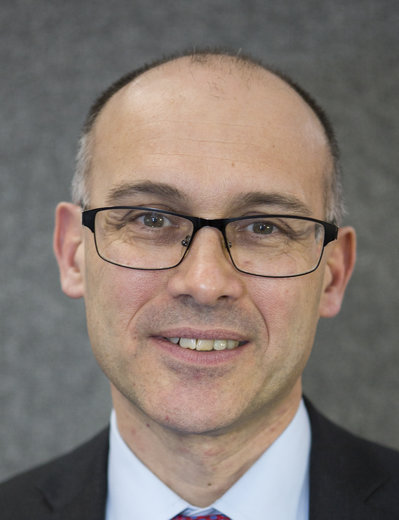A Third Of UK Adults ‘Unable To Name A Single Eating Disorder Symptom’, Reveals Charity
updated on Mar 2, 2018

A staggering 34 per cent of adults are unable to name any signs or symptoms of eating disorders, figures have revealed.
To coincide with Eating Disorders Awareness Week starting today, BEAT the UK’s leading eating disorder charity commissioned a survey of more than 2,000 people.
It revealed how more than a third of participants could not name a single sign or symptom of eating disorders. Nearly 80 per cent of people did not cite any psychological symptom, despite the charity insisting these usually appearing first in an eating disorder.
Examples include low confidence and self-esteem and a distorted perception of weight or shape.

Andrew Radford
Beat Chief Executive Andrew Radford believes the findings are worrying, and that a lack of awareness is stopping sufferings seeking help quickly.
Mr Radford also called on the government to invest in measures to ‘heighten awareness’ and that the charity is bidding for patients to receive help within six months of falling ill.
He said: “Eating disorders are serious mental illnesses and when people are treated quickly after falling ill, they are much more likely to have a fast and sustained recovery.
“There is a significant lack of knowledge or awareness among people at risk, their families and society as a whole.
“It’s very very common for GPs to look at eating disorders through the filter of physical symptoms and signs, and use this to diagnose a mental illness.
“We are working out our new five year strategy, with a target that everybody falling within having an eating disorder to get help within six months of falling ill.”
Mr Radford continued: “Generally speaking, eating disorders have physical consequences, but if you’re waiting for those to emerge, it’s far too late.
“It’s really important we get across the message of spotting the symptoms of a mental illness to diagnose a mental illness.
“Today, we are asking that the Government and NHS invest in measures to increase awareness of the early signs and symptoms, heightened awareness will not only improve outcomes for those suffering but also prove cost effective for the services treating patients.”
To mark EDAW 2018, Beat has launched the digital campaign ‘#WhyWait’ to encourage people to take action now by starting those difficult conversations and reaching out to find support through
When Rachel, 18, started developing an eating disorder she revealed that nobody suspected it.
She said: “Friends, teachers and my parents all missed the signs. They simply thought I was stressed about my GCSEs leading to my increased isolation, depression and weight loss.
“Even once I was diagnosed my parents questioned it and my mum always says she wishes she would have known what to look for.”
Rachel says that delays in recognising her symptoms affected her recovery and she would now be more able to spot the signs of eating disorders:
She continued: “I know eating disorders are not just about weight loss but also symptoms such as fatigue, avoiding socialising, lack of energy and rapid changes of mood”.

